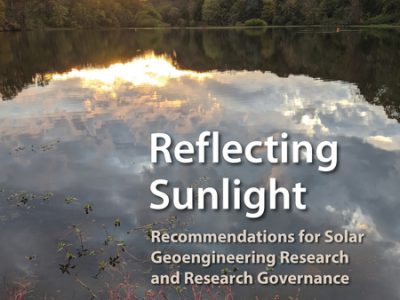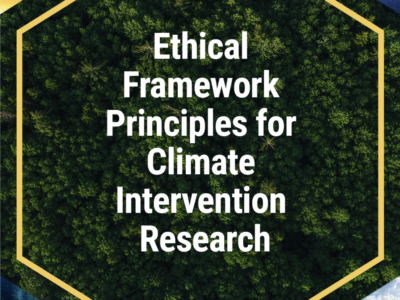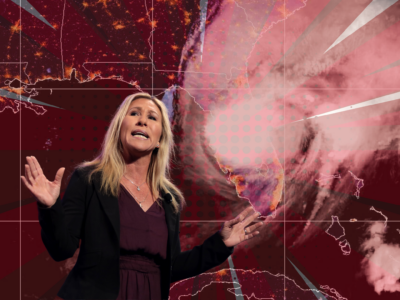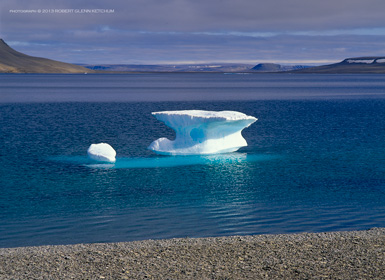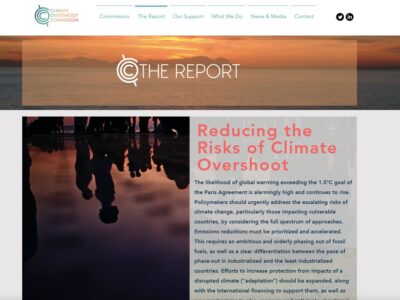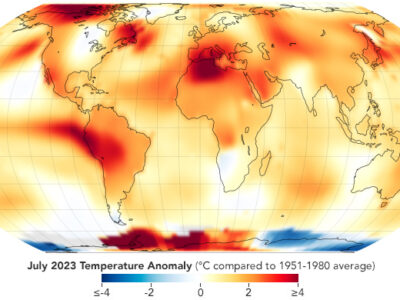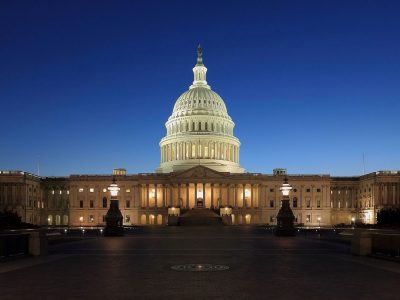geoengineering
The Politics of Geoengineering Are Getting Stranger
Of all the pollution threats out there, why are state lawmakers and U.S. EPA targeting solar geoengineering?
There are strange things happening in Climate World, in addition to all the horrifying things. Among the strangest is a surge in state bills to prohibit solar geoengineering. Just as strange is the recent shot across the bow by Trump’s EPA Administrator Lee Zeldin against one tiny startup firm that claims to be doing geoengineering. …
Continue reading “The Politics of Geoengineering Are Getting Stranger”
CONTINUE READINGThe 2024 Election Outcome Could Boost the Case for Geoengineering
A Trump victory would increase the odds that we will ultimately need to start blocking solar radiation as a last resort to limit climate change.
A Trump victory would increase the odds that we will eventually need to “break the glass and pull the red lever.” To be prepared for that possibility, we would also need to do more in the short term to research various forms of geoengineering, their feasibility, and their potential side effects. Basically, if you decide you’re going to start smoking a lot more cigarettes, you need to be prepared for the greater likelihood you’ll need chemo.
CONTINUE READINGAn Ethical Framework for Climate Intervention Research
Can the AGU’s new principles defuse controversy and enable responsible research?
Research into climate intervention techniques, especially solar geoengineering, has long been controversial. Scientists as well as publics and policy makers have been divided on its risks and merits. In recent years, experiments proposed or undertaken in the USA, Sweden and Mexico have triggered vociferous opposition. Growing and unregulated commercial interest in the technologies seems likely …
Continue reading “An Ethical Framework for Climate Intervention Research”
CONTINUE READINGReflections on “Yes they can control the weather.”
Marjorie Taylor Greene is wildly wrong about government scientists controlling hurricanes. There is a rich history of weather modification experiments that make that false claim more dangerous.
Since U.S. Rep. Marjorie Taylor Greene tweeted earlier this month that “Yes they can control the weather” — a bunch of commentators have pointed out that she’s wildly wrong. Yes, she’s wildly wrong. No one can make, intensify, or steer hurricanes. No ability to do anything like this is even on the horizon. Her comment …
Continue reading “Reflections on “Yes they can control the weather.””
CONTINUE READINGArctic Futures: White Shield or Blue Economy
Multiplying proposals for ice restoration face geopolitical obstacles
Ice-thickening. Glacier curtains. Cloud brightening… Proposals for Arctic climate interventions seem to be multiplying by the day. The changing climate is not only shrinking ice caps and ice sheets, but also bringing much greater than average temperature rises in polar regions. These impacts particularly disrupt the lives and livelihoods of Arctic Indigenous Peoples. Arctic impacts …
Continue reading “Arctic Futures: White Shield or Blue Economy”
CONTINUE READINGThe Overshoot Commission Addresses Geoengineering
The Commission tries to make it OK to talk about – not do – solar geoengineering. Its report proposes a moratorium, coupled with efforts to carefully build knowledge.
In this, my third post on the recently released report of the Climate Overshoot Commission, I’ll discuss their treatment of the most challenging and controversial part of their mandate, Solar Geoengineering or Solar Radiation Modification (SRM). As I noted in my introductory post on the Commission, I served as an advisor to the Secretariat and …
Continue reading “The Overshoot Commission Addresses Geoengineering”
CONTINUE READINGClimate Change is Finally Heating Up Politics – But Not in a Good Way
Pitting defence of our ‘way of life’ against climate policies is a recipe for division and inaction
Climate impacts are growing rapidly in this El Niño affected summer. Despite calls to declare a climate emergency, President Biden has responded only with new measures to help Americans cope with extreme heat. The measures announced include hazard alerts, improved prediction of heatwaves, funding for air-conditioning and cool centers for low income groups, and guidance …
Continue reading “Climate Change is Finally Heating Up Politics – But Not in a Good Way”
CONTINUE READINGSolar Geoengineering in the News — Again and Again
An update on the serious and the silly
Solar geoengineering has been prominent in the news lately. It looks like the long-predicted spike of attention to these potential climate responses may finally be starting – with many attendant opportunities for controversy and confusion. For background on solar geoengineering, why it’s important to research, and what the debates over it are, check out various …
Continue reading “Solar Geoengineering in the News — Again and Again”
CONTINUE READINGThe Kolbert Report
Elizabeth Kolbert’s new book asks what it means to protect nature in the Anthropocene.
Elizabeth Kolbert’s new book, Under a White Sky, opens with the story of the battle to keep invasive Asian carp out of the Great Lakes. The problem exists because of two earlier interventions with nature. A century ago, we reversed the flow of the Chicago river to keep the city’s pollutants out of Lake Michigan …
Continue reading “The Kolbert Report”
CONTINUE READINGThe U.S. Government Is Researching Solar Geoengineering. Now What?
Officials should use the tools on hand to get governance right.
In December, Congress renewed funding for the National Oceanic and Atmospheric Administration (NOAA) to investigate stratospheric aerosols as a potential method for “solar climate interventions,” expanding a research program established a year earlier. These actions have been widely interpreted as the first-ever federal research project into solar geoengineering—proposals to slightly “dim the sun” to limit …
Continue reading “The U.S. Government Is Researching Solar Geoengineering. Now What?”
CONTINUE READING




